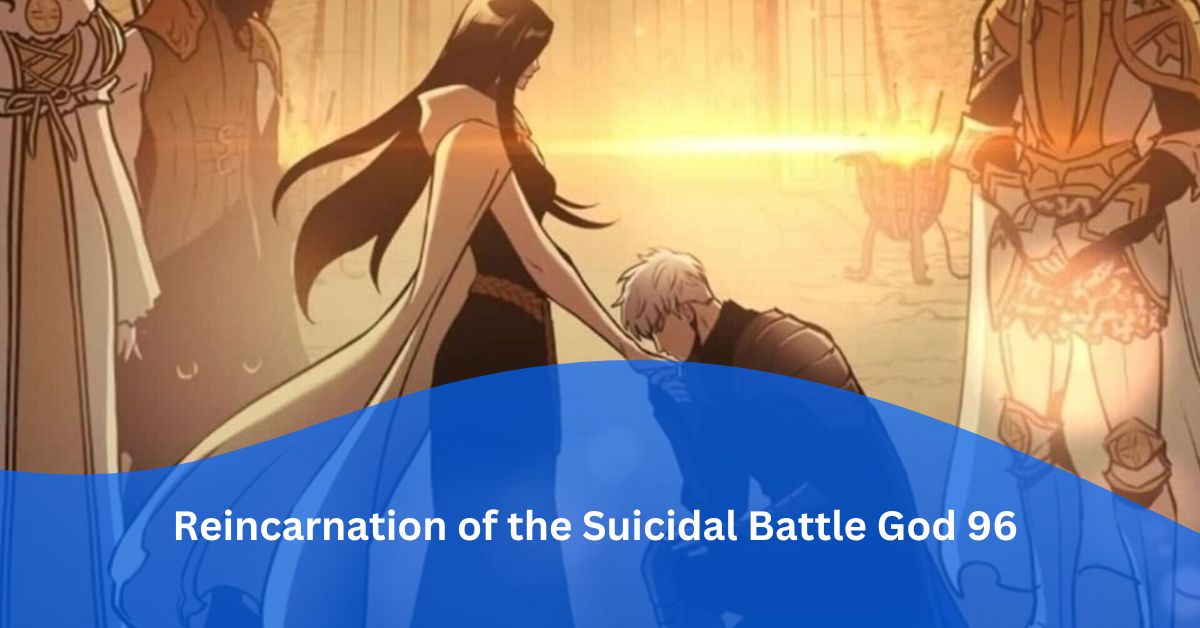In the realms of mythology and folklore, tales of gods and their reincarnations have captivated human imagination for centuries. Among these tales lies the intriguing legend of the Suicidal Battle God 96, a figure shrouded in mystery and mystique.
The reincarnation of the Suicidal Battle God 96 is a riveting saga blending themes of redemption, warfare, and destiny, infusing fresh perspectives into mythological narratives.
In this article, we delve into the enigmatic concept of the reincarnation of the Suicidal Battle God 96, exploring its origins, interpretations, cultural significance, and modern-day relevance.
Origins Of The Suicidal Battle God 96 – Dive Into History!
Contents
- 1 Origins Of The Suicidal Battle God 96 – Dive Into History!
- 2 The Concept Of Reincarnation – Discover Your Past Lives Now!
- 3 The Legend Of Suicidal Battle God 96’s Reincarnation – Embark On A Thrilling Journey!
- 4 Cultural Impact And Interpretations – Unravel The Significance Of Suicidal Battle!
- 5 Modern Depictions And Adaptations – Explore The Contemporary Twist!
- 6 Controversies Surrounding The Concept – Explore The Debates!
- 7 Personal Reflections And Insights Of Suicidal Battle – Discover Your Inner Wisdom!
- 8 Frequently Asked Questions:
- 8.1 1. Is The Legend Of The Suicidal Battle God 96 Based On A Real Deity?
- 8.2 2. What Significance Does The Number 96 Hold In The Legend?
- 8.3 3. Are There Any Modern-Day Rituals Associated With The Suicidal Battle God 96’s Reincarnation?
- 8.4 4. How Does The Concept Of Reincarnation Differ In Eastern And Western Cultures?
- 8.5 5. Can Individuals Communicate With The Suicidal Battle God 96 In Their Dreams Or Visions?
- 9 Conclusion:
Mythological Background:
The Suicidal Battle God 96 originates from ancient myths and legends passed down through generations. Depicted as a formidable warrior with unparalleled combat prowess, this deity was revered and feared by ancient civilizations.
Cultural Significance:
Across various cultures, the Suicidal Battle God 96 symbolizes different aspects such as bravery, sacrifice, and the inevitability of death. The deity’s tales often serve as moral lessons and sources of inspiration for warriors and leaders.
The Concept Of Reincarnation – Discover Your Past Lives Now!

Definition And Beliefs:
Reincarnation, steeped in spiritual and religious doctrines, symbolizes the soul’s journey into a new existence following mortal passing. It encapsulates the perpetual rhythm of existence, illustrating the unbroken flow between life and death.
This enduring concept underscores the belief in the soul’s timeless evolution through successive lifetimes. In essence, reincarnation embodies the profound notion of continuity within the eternal tapestry of existence.
Variations Across Cultures:
Different cultures have diverse interpretations of reincarnation, ranging from the transmigration of souls to the attainment of spiritual enlightenment. The concept often intertwines with religious doctrines and philosophical teachings.
The Legend Of Suicidal Battle God 96’s Reincarnation – Embark On A Thrilling Journey!
Prophecies and Tales:
Ancient prophecies and myths foretell the reincarnation of the Suicidal Battle God 96 in times of great turmoil and chaos. Tales recount the deity’s return to fulfill a destined purpose, whether to bring about salvation or destruction.
Interpretations and Speculations:
Interpretations of the legend vary, with some viewing the reincarnation of the Suicidal Battle God 96 as a symbol of hope and renewal, while others perceive it as a harbinger of doom and catastrophe. Speculations abound regarding the identity and nature of the reincarnated deity.
Cultural Impact And Interpretations – Unravel The Significance Of Suicidal Battle!

Religious Perspectives:
In religious contexts, the concept of the Suicidal Battle God 96’s reincarnation carries profound spiritual implications, influencing rituals, ceremonies, and religious practices. Followers may seek guidance and solace in the deity’s divine presence.
Societal Relevance:
The legend of the Suicidal Battle God 96’s reincarnation continues to resonate in contemporary society, inspiring literature, art, and cultural events. Its themes of redemption, destiny, and sacrifice resonate with audiences worldwide.
Modern Depictions And Adaptations – Explore The Contemporary Twist!
Literature and Art:
Authors and artists often draw inspiration from the legend of the Suicidal Battle God 96, incorporating its motifs and symbolism into their works. From epic poems to visual masterpieces, these interpretations offer new perspectives on the ancient tale.
Media and Entertainment:
In the realm of media and entertainment, the reincarnation of the Suicidal Battle God 96 has become a recurring theme in movies, television shows, and video games. These adaptations reimagine the deity’s story for contemporary audiences, blending tradition with innovation.
Controversies Surrounding The Concept – Explore The Debates!

Ethical and Moral Considerations:
The concept of reincarnation raises ethical dilemmas regarding the nature of existence, free will, and destiny. Debates ensue regarding the implications of predetermined fate versus individual agency.
Skepticism and Criticisms:
Skeptics challenge the validity of the legend, dismissing it as a mere myth or superstition devoid of empirical evidence. Critics argue against the concept of reincarnation, citing scientific explanations and rational inquiry.
Personal Reflections And Insights Of Suicidal Battle – Discover Your Inner Wisdom!
Individual Beliefs:
For many individuals, the legend of the Suicidal Battle God 96’s reincarnation sparks introspection and contemplation. Personal beliefs and experiences shape one’s interpretation of the myth, leading to diverse perspectives and insights.
Philosophical Contemplations:
Philosophers ponder the existential implications of the legend, exploring themes of mortality, identity, and the human condition. Through philosophical inquiry, deeper meanings and truths may be uncovered.
Frequently Asked Questions:
1. Is The Legend Of The Suicidal Battle God 96 Based On A Real Deity?
The Legend of the Suicidal Battle God 96 is a work of fiction and not based on a real deity. It is important to recognize that many stories, especially those in the realm of mythology and fantasy, are products of human imagination and creativity rather than representations of real-world entities or beliefs.
2. What Significance Does The Number 96 Hold In The Legend?
In numerology, 96 symbolizes harmony, balance, and completion. It’s associated with achieving goals and reaching a state of fulfillment. In various legends and cultures, 96 often represents a harmonious union or a successful journey’s end.
3. Are There Any Modern-Day Rituals Associated With The Suicidal Battle God 96’s Reincarnation?
No, there are no modern-day rituals associated with the Suicidal Battle God 96’s reincarnation. The concept of such a deity is likely fictional or part of a specific cultural narrative rather than a widely recognized belief system.
4. How Does The Concept Of Reincarnation Differ In Eastern And Western Cultures?
In Eastern cultures, reincarnation is often viewed as a cyclic process influenced by karma, where the soul undergoes multiple rebirths until achieving enlightenment. In Western cultures, reincarnation is typically seen as a less prevalent belief, often associated with individual spiritual interpretations rather than a widely accepted doctrine.
5. Can Individuals Communicate With The Suicidal Battle God 96 In Their Dreams Or Visions?
There’s no empirical evidence to suggest individuals can communicate with a fictional character like “Suicidal Battle God 96” in dreams or visions. Such experiences typically involve the mind’s internal processes rather than external communication.
Conclusion:
The reincarnation of the Suicidal Battle God 96 stands as a timeless testament to humanity’s fascination with life, death, and the unknown. Whether viewed as a mythological tale or a profound spiritual belief, transcends the boundaries of time and culture.
Read:



